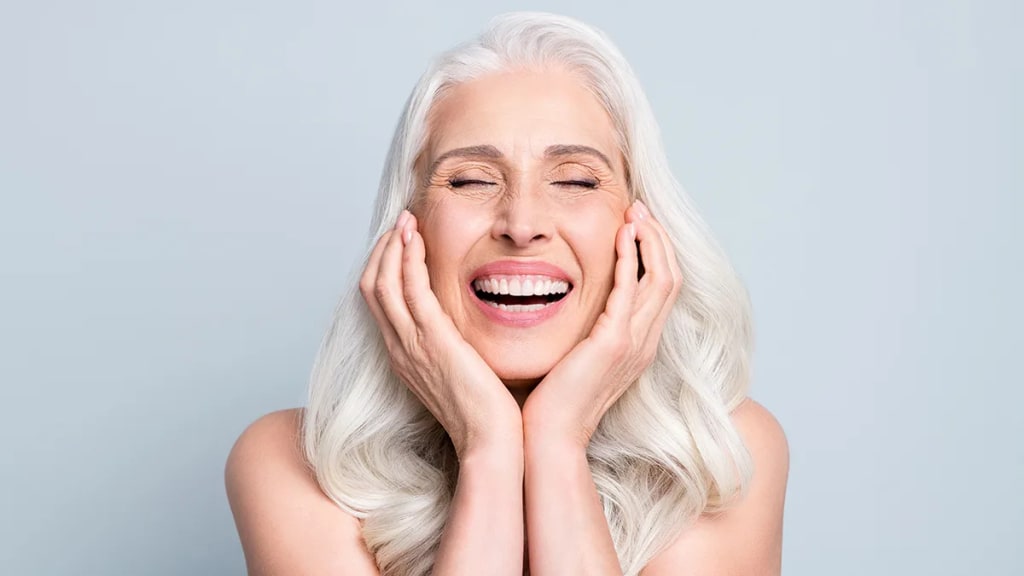This Daily Routine May Stop Summertime Hair Loss, According to Research. New Research Reveals the Two Nutrients That May Reverse Thinning Hair
Read the article to get your free prize!

If you're past the half-century mark, chances are you've witnessed the gradual thinning of your once-luscious locks. That sinking feeling you get when you run your fingers through your hair and end up with a handful of strands is all too familiar. But fear not! Help is on the way!
The prevalence of hair loss Are you finding more hair in your brush than on your head? You're not alone! Dermatologist Debra Jaliman, MD, an assistant clinical professor of dermatology at the Mt. Sinai School of Medicine in New York City, explains that thinning hair is a common occurrence, especially as we age. In fact, by the time we reach 40, we typically have half the amount of hair we had in our twenties. This can be attributed, in part, to a decline in estrogen levels.
To add insult to injury, hot weather doesn't do our hair any favors either. A study published in The British Journal of Dermatology revealed that hair loss may increase by six percent daily during the summer due to factors like damaging UV light and excessive sweating.
And that's not all - hair often enters a dormant phase of slowed growth during the summer, with the fallout becoming noticeable in early autumn, says Natalie Kash, MD, a hair restoration surgeon at the Root Hair Institute in Washington.
How a specific daily routine can help The good news is that there are plenty of steps you can take now to combat hair loss, assures Dr. Jaliman. "From making slight adjustments to your diet to protecting your scalp from the sun, you can promote healthier hair." Read on for simple lifestyle changes that will leave you with fuller locks throughout the year.
Morning ritual: Savor an omelet According to a study published in the International Journal of Trichology, nearly 40 percent of women experiencing hair loss have a biotin deficiency. Biotin is a B vitamin that helps strengthen the hair protein keratin.
Boosting your biotin levels can be as easy as incorporating biotin-rich eggs into your diet. Dr. Jaliman recommends enjoying eggs a few mornings each week. Eggs are also a fantastic source of protein and omega-3s, both of which are essential for hair growth. To maximize the benefits, she suggests supplementing your diet with 5,000 micrograms of biotin daily.
Concerned about consuming too much fat? Opt for Eggland's Best eggs, which have 25 percent less fat than ordinary eggs. Additionally, consider adding more high-protein foods to your meals, such as lean meat, fish, and Greek yogurt. Greek yogurt is also rich in vitamin B-5, a nutrient known to boost blood flow to the scalp and promote hair growth.
Afternoon strategy: Don a wide-brimmed hat Excessive sweating on the scalp can lead to a buildup of yeast, triggering dandruff and temporary hair loss, explains Dr. Kash. The solution? Protect your head with a wide-brimmed hat when you're out in the sun. "A breathable hat made of polyester or cotton minimizes UV damage to the hair and scalp while allowing air circulation, which helps reduce sweating."
This strategy also helps prevent folliculitis - small inflammation bumps on the scalp that can lead to hair loss over time. For optimal scalp and face protection, choose a hat with a brim of at least three inches wide, as recommended by a study in the British Journal of Dermatology.
Nighttime ritual: Unwind with a mineral "Healthy hair growth requires a significant amount of metabolic activity, and zinc plays a key role in energy production within the body, including the energy needed for hair growth," says Dr. Kash. A study published in the Annals of Dermatology showed that patients with hair loss who supplemented with 50 milligrams of zinc daily for 12 weeks experienced hair growth.
Zinc also helps lower levels of the stress hormone cortisol, a major contributor to hair loss according to a Harvard study. An added bedtime bonus: A study in the Journal of International Molecular Sciences found that individuals with optimal zinc levels fell asleep faster, likely due to the mineral's ability to improve slow-wave sleep.
Remember, this information is not a substitute for professional medical advice or diagnosis. Always consult your physician before embarking on any treatment plan.
GET YOUR FREE E-BOOK ON HAIR LOSS NOW: CLICK HERE






Comments
There are no comments for this story
Be the first to respond and start the conversation.